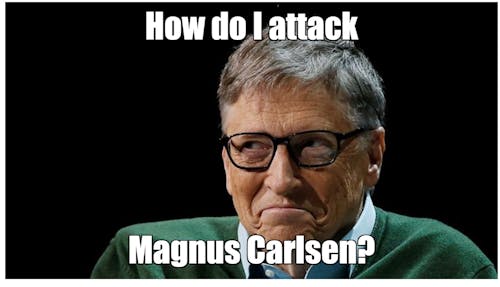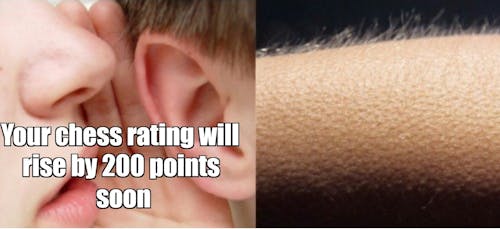Are you sure you want to delete your account?
(This will permanently delete all of your data - purchases, game scores, ratings, etc)
Change your username
Your current username is: guest
Change your account email address
Your current account email is:
Redeem your Fampay code here!
Use your Fampay code to get access to the Play Magnus Plus Membership!
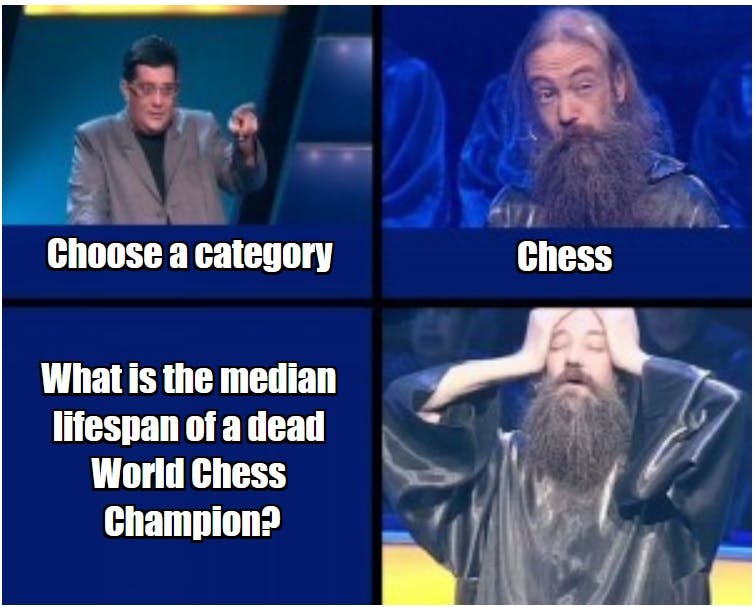
How Long Do World Chess Champions Live?
As a kid, I was a big fan of watching intellectual games on TV and competing in such contests myself. Jeopardy!, Who Wants To Be a Millionaire, What? Where? When?, The Weakest Link, Brain Ring, and so on. I am less fond of them since nowadays when you can search most things online, storing too many relatively useless facts in your head is probably not the way to go. Ironically, this topic reminds me of a conversation between Dr. Watson and Sherlock Holmes in Arthur Conan Doyle's "A Study in Scarlet":
"You see," he explained, "I consider that a man's brain originally is like a little empty attic, and you have to stock it with such furniture as you choose. A fool takes in all the lumber of every sort that he comes across, so that the knowledge which might be useful to him gets crowded out, or at best is jumbled up with a lot of other things, so that he has difficulty laying his hands upon it. Now the skillful workman is very careful indeed as to what he takes into his brain-attic. He will have nothing but the tools which may help him in doing his work, but of these he has a large assortment, and all in the most perfect order. It is a mistake to think that that little room has elastic walls and can distend to any extent. Depend upon it there comes a time when for every addition of knowledge you forget something that you knew before. It is of the highest importance, therefore, not to have useless facts elbowing out the useful ones."
"But the Solar System!" [Dr. Watson] protested.
"What of the deuce is it to me?" he interrupted impatiently: "you say that we go round the sun. If we went round the moon it would not make a pennyworth of difference to me or to my work."
Nowadays, the argument made by Holmes is more alive than ever.

Dr. Watson and Sherlock Holmes as portrayed by Martin Freeman and Benedict Cumberbatch. Image from Popsugar.co.uk
Anyway, I still enjoy trivia questions that get your brain working instead of merely recalling the information you already know. You know, the challenges for nerds HRs ask potential employees of top IT and consulting companies.
What if I asked you to estimate the median lifespan of the classical World Chess Champions who have already passed away? How would you approach this task? Ponder this question for a bit and see if you can reach a conclusion.
I am by no means an expert in the field of longevity, so the musings presented below should not be treated as the "solution".
Overall, there were only 16 classical World Chess Champions. A quick count reveals that ten of them passed away, while six are still alive.
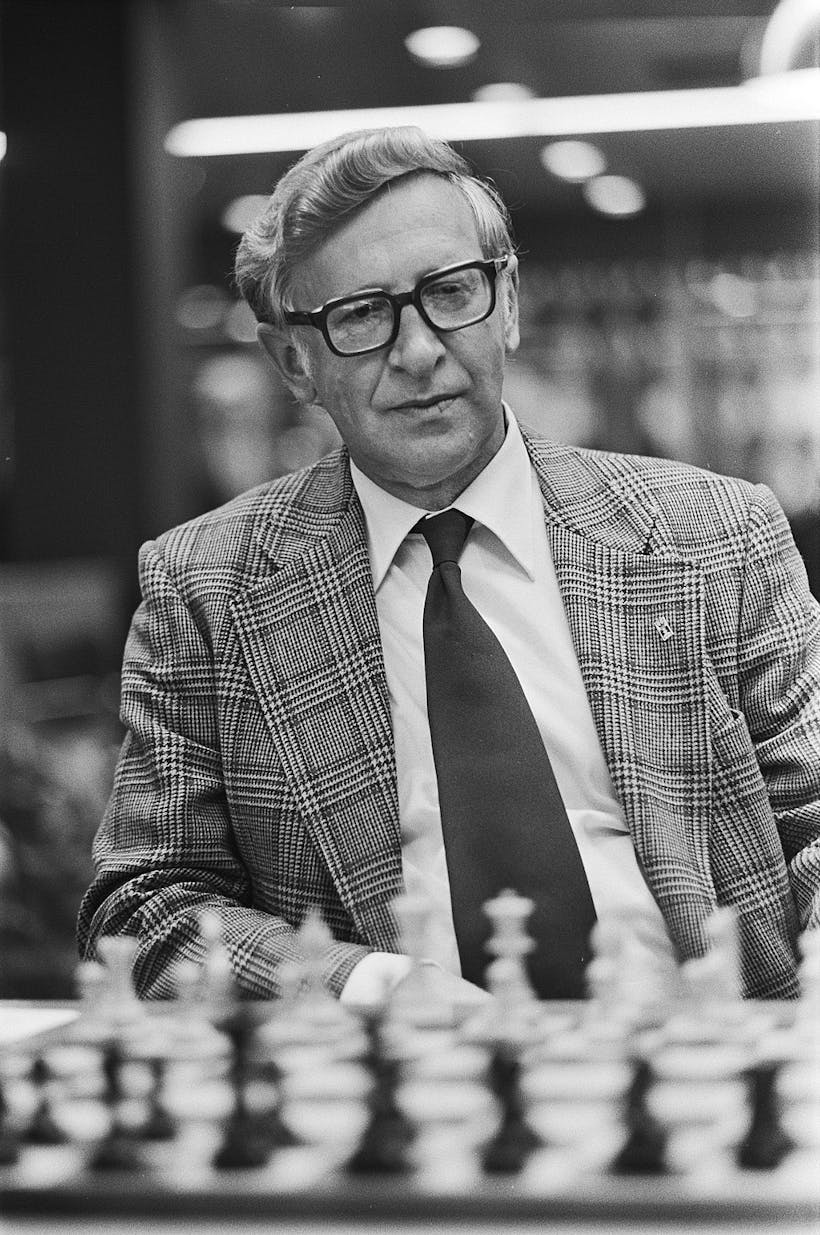
At 63, Vasily Smyslov played a Candidates Match against Garry Kasparov. Smyslov holds the longevity record so far when it comes to World Chess Champions - 89 years. Not in Yuri Averbakh's league, but still quite respectable!
Approach #1
If you continue relying on knowledge, you can come up with a reasonably accurate estimate if you know the biographies of the champions well. I wouldn't remember the exact age at which most of them died, but I can easily come up with assessments such as "should be 80+ for Botvinnik" , "Smyslov had the longest life of them, almost hitting 90", or "Tal didn't reach 60". In a matter of seconds, I would tell you that the answer is probably between 60 and 70 years.
Approach #2
If you don't know the biographies of the players well enough to juggle lifespan numbers, the challenge becomes much more formidable. What factors do you think are relevant here? Once again, probably neither of us is a longevity expert, so we have to invent them on the go.
Country of origin. If you have ever looked at the list of countries sorted by life expectancy, you will realize that the place of living has a tremendous effect on life expectancy. The numbers in the table range from 84+ in Japan to 53+ in Central African Republic. The World Champions had diverse backgrounds. Half of them were from the USSR, and the rest were mostly from developed countries. Overall, this is a tough factor to assess unless you have expert knowledge, but my guess would be that the country of origin is more of a plus than a minus in their case. +
Date of birth. This is also a huge factor to consider. Most of the late World Chess Champions died in the XXth century. The only exceptions are Vasily Smyslov and Bobby Fischer. Overall, this factor is more of a minus since life expectancy has been known to increase rapidly over the last century. +
Education. Nowadays, to become a professional chess player, you typically have to give up on your university studies or even ditch high school. However, historically it was not the case. At some point, Mikhail Botvinnik passionately argued that a person without a college degree would never become a World Champion! A few World Chess Champions of the past had Ph.D. degrees, and my guess would be that they were more educated than their average contemporaries. And since the level of education has a positive correlation with life expectancy, this should give the number in question a boost. +
Gender. In some countries, the gap is more pronounced than in others. However, throughout most of the world, females tend to outlive males by a few years. Since all the World Chess Champions were men, this factor works against them. -
Income. Before Bobby Fischer, chess players usually had a day job since playing chess was not a lucrative occupation. However, there are all sorts of privileges that come with being a World Champion. In the USSR, for instance, they received extensive support from the government. Therefore, I would claim that, compared to their average contemporaries, World Chess Champions were better off and hence more likely to live longer. +
Occupation. This one is a tough cookie. Chess is an intellectual activity that is supposed to prolong your lifespan. However, this mainly refers to playing chess as a hobby. Pursuing it competitively is a different matter. Boris Spassky once pointed out that playing a WCC match takes three years off your life expectancy. Of course, this was not a serious claim, but it drives the message home. Professional chess players have to deal with extreme stress, jet lag, and a passive lifestyle, not to mention staying late at night since to be fresh for the round that usually starts at 3-4 p.m., one has to wake up late. I am torn on this one and can't announce it to be a definite plus or minus. ?
Family status. All the late World Champions were married. The record-holder in this respect used to be Mikhail Tal, who was quite a ladies' man and ended up being married thrice. This made him untrustworthy in the eyes of the Soviet authorities and played a key role in limiting his trips abroad. Later, Garry Kasparov matched Tal's record, also marrying three times. Since, on average, married men tend to live longer than single, this is a plus. +
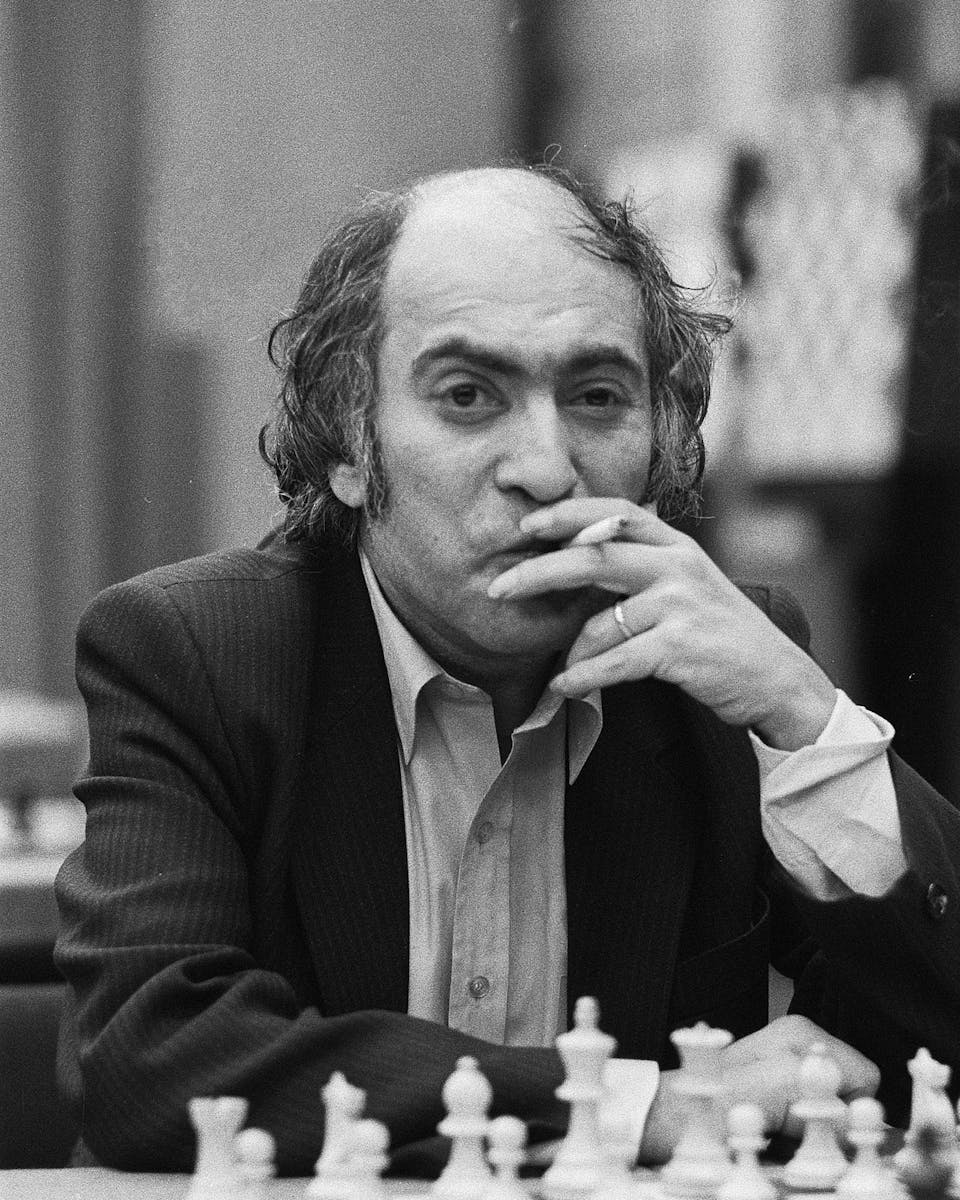
Mikhail Tal generally had fragile health. His bohemian lifestyle didn't quite help with longevity. Petrosian and Tal both died at 55.
Here is the trickiest part. How do we factor in everything we have just assessed? Based on the country of origin and date of birth, I would guess something like 60 years. Considering gender, education, income, family status, and occupation, I would probably throw in another 10 years or so. Hence my bet would be around 70.

Are you interested in Magnus Carlsen's take on his greatest predecessors? Check out the Magnus Trainer app. Among other lessons, you will find biographical articles about the best chess players of all time, presenting intriguing facts and the masterpieces they have created over the board.
Now it's time to see how accurate your (and mine!) estimates were. Here are the nitty-gritty statistics:
Wilhelm Steinitz (Prague, May 17, 1836 – August 12, 1900) – 64
Emanuel Lasker (December 24, 1868 – January 11, 1941) – 72
José Raúl Capablanca (19 November 1888 – 8 March 1942) – 53
Alexander Alekhine (October 31, 1892 – March 24, 1946) – 53
Max Euwe (May 20, 1901 – November 26, 1981) – 80
Mikhail Botvinnik (August 17, 1911 – May 5, 1995) – 83
Vasily Smyslov (24 March 1921 – 27 March 2010) – 89
Mikhail Tal (November 9, 1936 – June 28, 1992) – 55
Tigran Petrosian (June 17, 1929 – August 13, 1984) – 55
Robert James "Bobby" Fischer (March 9, 1943 – January 17, 2008) – 64
Now let's take a look at the numbers: 89, 83, 80, 72, 64, 64, 55, 55, 53, 53.
The median life duration for a World Chess Champion is 64 – the number of chess squares on the board! Coincidence? I don't think so.
Despite the difference in methodology, approaches #1 and #2 have provided relatively close and reasonably accurate estimates.
Out of six World Champions who are still alive, two have already passed this threshold. Boris Spassky, the oldest living WC, is 85. Anatoly Karpov is 71. Garry Kasparov is expected to turn 60 next year. Viswanathan Anand, who has just returned to the top-10 in the world, is 52. Vladimir Kramnik, who is competing in the Chess Stars event today, is 47. Magnus Carlsen, playing in the European Chess Club Cup, is 31.
Let's wish the legendary World Champions to exceed the current median age of 64 by far! Records are meant to be broken.
